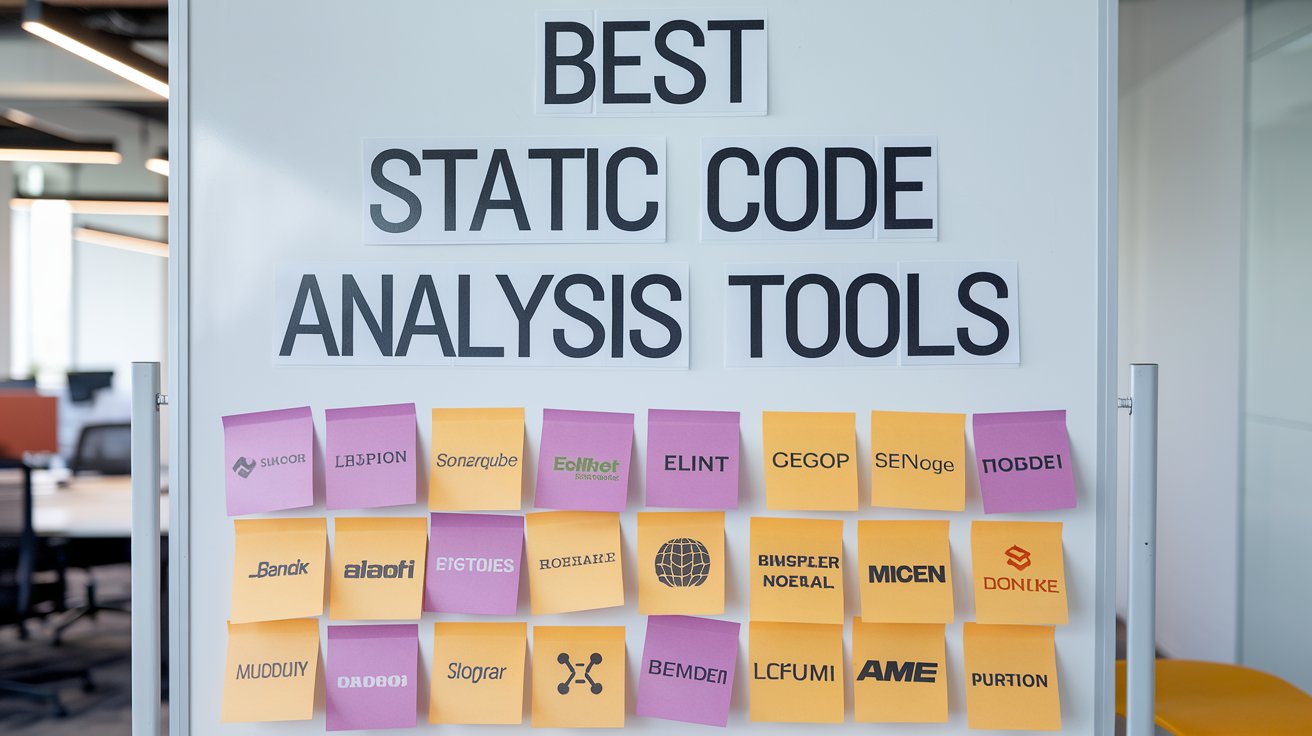Best Static Code Analysis Tools: Strengthen Your Software Security
In today’s digital landscape, secure code isn’t a preference—it’s a need. The best static code analysis tools have become basic weapons in a developer’s weapons store, making a difference. The team recognized vulnerabilities some time ago and ended up with expensive issues. These tools examine code without executing it, flagging potential problems early in the development cycle.
Why Static Code Analysis Matters
Security breaches can demolish businesses of all sizes. A single act of vulnerability can lead to data theft, money-related loss, and irreparable damage to your reputation. Static code analysis serves as your first line of defense.
These tools go beyond simple bug locations. They implement coding benchmarks, identify security flaws, and offer assistance to maintain consistency across large codebases. The result? A more secure, viable program delivered on time and within budget.
Best Static Code Analysis Tools
1. SonarQube
SonarQube excels in its thorough approach to ensuring code quality. It identifies bugs, vulnerabilities, and code smells in more than 27 programming languages. Its user-friendly dashboard provides transparent metrics and valuable insights.
The tool coordinates consistently with well-known CI/CD pipelines, making it perfect for DevOps situations. Teams especially value its “quality gate,” which prevents substandard code from reaching the generation.
2. ESLint
For JavaScript developers, ESLint remains the gold standard. This highly configurable tool recognizes tricky patterns and implements fashion rules.
What makes ESLint extraordinary is its extensibility—developers can create custom rules custom-made to their specific needs.
Its integration with cutting-edge systems like React and Vue makes it fundamental for front-end development teams focused on delivering secure, high-quality applications.
3. Checkmarx
Checkmarx specializes in security-focused analysis. It exceeds expectations in identifying OWASP Top 10 vulnerabilities and compliance issues. The tool’s quality lies in its deep understanding of application settings and data flow analysis.
Enterprise teams appreciate Checkmarx for its robust reporting capabilities and remediation guidance. It effectively bridges the gap between improvement and security teams.
4. Fortify
HPE’s Fortify offers industrial-strength security analysis. It gives broad scope over different languages and systems, making it appropriate for complex enterprise environments.
Fortify stands out for its detailed vulnerability clarifications and settlement suggestions. The tool’s machine learning capabilities continuously improve its detection accuracy, making a difference so teams remain ahead of developing threats.
5. CodeSonar
CodeSonar exceeds expectations by identifying complex, hard-to-find bugs in C, C++, and Java codebases. It’s especially profitable for safety-critical frameworks in businesses like aviation, cars, and medical gadgets.
Its visualization capabilities help developers understand complicated code connections and potential vulnerability paths, making it simpler to address security issues in complex frameworks.
Implementation Best Practices
Effective static code analysis implementation requires more than just installing a tool. Consider these best practices:
- Start small with basic components before expanding analysis over your entire codebase.
- Customize rules to coordinate your project’s particular requirements and risk profile.
- Integrate analysis into your CI/CD pipeline to capture issues early.
- Set up sensible limits that adjust security needs with development speed.
- Give developers preparation on understanding and addressing distinguished issues.
How OraseCo Helps You
OraseCo offers specialized expertise in executing static code analysis as part of a comprehensive security strategy. Their group of security experts helps organizations select, configure, and optimize the correct tools for their specific technology stack and risk profile.
OraseCo’s approach combines automated tools with human expertise, ensuring that security isn’t just a checkbox but an essential viewpoint of your development. They provide:
- Custom tool configuration tailored to your particular industry requirements
- Integration support for your existing development workflow
- Developer preparing to maximize device effectiveness
- Ongoing monitoring and optimization
- Compliance-focused analysis for regulated businesses
By collaborating with OraseCo, you gain access to security expertise that complements your development team, resulting in stronger, more flexible software frameworks.
Conclusion
The best static code analysis tool can change your development process, resulting in more secure, solid software. By catching vulnerabilities early, these tools save time, reduce costs, and secure your clients.
As security threats evolve, static analysis tools continue to develop.
Implementing them isn’t just a technical decision—it’s a key venture in your product’s future and your company’s reputation.
OraseCo stands ready to assist you in navigating this complex landscape, ensuring that your organization implements the proper tools and practices to maximize security while keeping up development proficiency.
FAQs
What is static code analysis?
Static code analysis looks at source code without executing it to recognize potential bugs, security vulnerabilities, and code quality issues early within the development process.
How does static analysis differ from dynamic analysis?
Static analysis examines code without running it, whereas dynamic analysis tests the code amid execution. Both approaches are complementary—static finds issues before deployment, while dynamic catches runtime issues.
Can static code analysis replace manual code reviews?
No, but it complements them effectively. Static analysis tools capture many issues, consequently allowing human reviewers to focus on higher-level concerns like architecture and business logic.
How do I select the proper static analysis tool?
Consider your programming languages, team size, integration necessities, and specific security needs. Many tools offer free trials—test them with your actual codebase before committing.
How can OraseCo help with implementing static code analysis?
OraseCo gives expert guidance in selecting and configuring the proper static analysis tools for your particular environment. Their team offers usage back, custom rule development, and integration along with your existing workflows to maximize security benefits.
Are open-source static analysis tools reliable?
Many open-source tools like ESLint and PMD are highly reliable and widely utilized in production environments. Their active communities continuously move forward, the discovery capabilities, and keep the rules updated.
